Background
Across our heritage collections, we hold extensive archives relating to women and work. There are personal papers of pioneering women who gained entry into different professional fields. There are also papers of activists and campaigning groups who worked to bring equality to the workplace. Here are some broad topics and highlights from the collection.
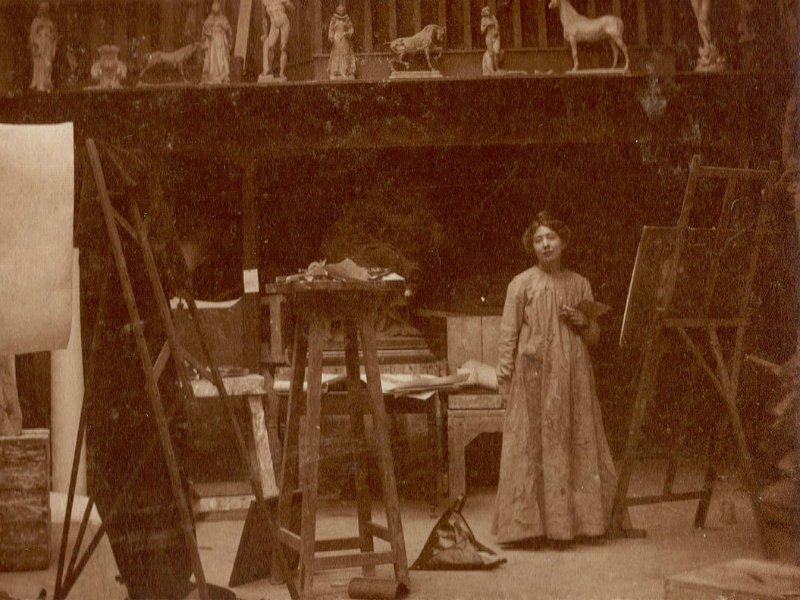 Sylvia Pankhurst in her studio.
Sylvia Pankhurst in her studio.
Women in the Arts
Our archives hold the papers of women who worked in the arts, for example as actresses, jewellers, artists, and of organisations who campaigned for equality for women in the industry. These include:
- Sarah Martineau was a jeweller in the early 20th century. Her diaries describe her training at art college.
- Vera ‘Jack’ Holme was a cross-dressing actress who was also a member of the Actresses Franchise League.
- Women in Entertainment operated during the 1980s campaigning on many issues affecting women in the entertainment industry such as portrayal of women, racism, state funding of the arts, working hours and conditions, abortion / childcare facilities. The group was also support network for women and ran workshops and providing information.
Women in the Church
Women’s ordination to the priesthood was debated by some during the women’s suffrage campaign. It remained a campaign issue until 1994 when the first women were ordained. Relevant archives include:
Women in the Civil Service
Women first worked in the Civil Service as clerks and shorthand writers during the late 19th century. Women also became factory inspectors. After the Sex Disqualification (Removal) Act in 1919, women could now apply for higher-graded positions in the Civil Service. Relevant archives include:
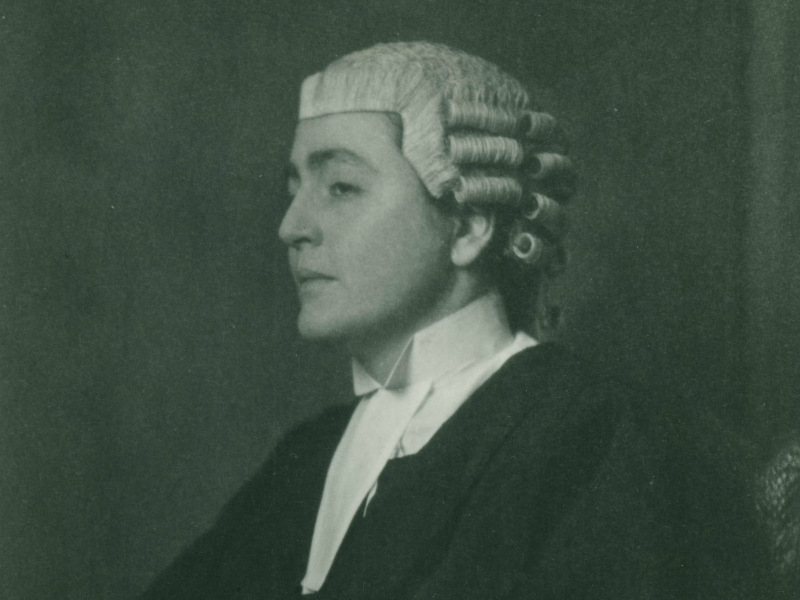 Enid Locket Rosser in 1928.
Enid Locket Rosser in 1928.
Women in Law
Women read Law at University but could not officially practice as solicitors and barristers in the UK until the passing of the Sex Disqualification (Removal) Act in 1919, which removed any legal barrier to women to work as lawyers on the grounds of their sex. Archive highlights include:
- Maud Crofts (née Ingram) was one of four women who challenged the Law Society’s refusal to admit women as members in 1913. Ten years later, she was the only one from this group to be issued with a certificate to practise as a solicitor.
- Helena Normanton’s archive charts her fight to join the Bar of England and Wales and open it up to women. She was the first woman to be admitted to an Inn of Court on 24 December 1919 and was called to the Bar in 1922.
- Enid Rosser Locket, a student at LSE, was called to the Bar in 1927. Her unpublished memoir reveals a different perspective on the legal profession, to that of Helena Normanton’s, despite prejudice and hardship.
Women in Media
Our archives include women who worked in different branches of the media such as journalism, book publishing, advertising and public relations. There are also campaigning organisations who worked to bring about gender equality in the industry.
- Jill Craigie was a documentary film-maker during and after the Second World War. During the 1950s she moved into screenwriting and remained active as a journalist.
- Women in Media, established in 1970, campaigned for women to be employed in senior positions, especially in the BBC and ITV, and for a better, less sexist slant to stories about women.
- The OnlyWomen Press was established in 1974 to publish literature which challenged gender and sexual stereotypes and where a method of work would be employed that was identifiably feminist.
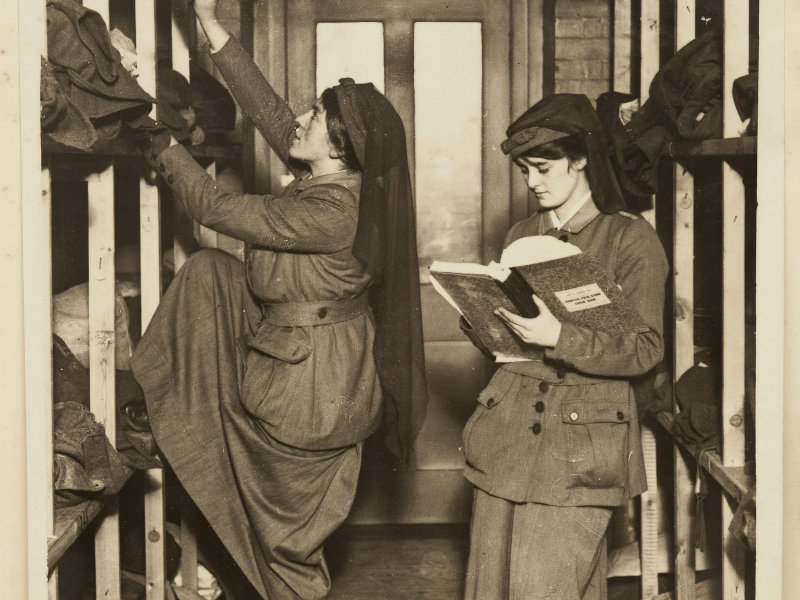 Staff at Endell Street Military Hospital.
Staff at Endell Street Military Hospital.
Women in Medicine
We hold material relating to pioneering women in medicine. These include:
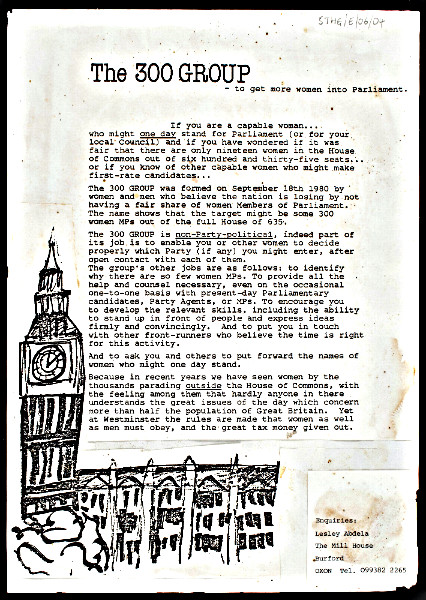 A 300 Group leaflet.
A 300 Group leaflet.
Women in Politics
We hold the papers of women MPs who worked to achieve women’s equality. These include:
- Edith Summerskill (MP who founded the Married Women’s Association in 1938 to bring about equality in marriage). Find out more about women in politics in our Women of Westminster exhibit.
- Claire Short (MP established Campaign Against Pornography in response to her bill to ban erotica such as ‘Page 3’ in national newspapers).
- Nancy Seear stood unsuccessfully as a Liberal candidate in many elections. She taught Personnel Management at LSE from 1946-1978 and conducted a number of studies into women’s employment.
There are also papers of organisations that campaigned to increase the numbers of women entering Parliament.
- The group Women for Westminster campaigned for more women MPs in the 1940s.
- The 300 Group, founded in 1980, encouraged more women to stand for public office, as councillors or MPs.
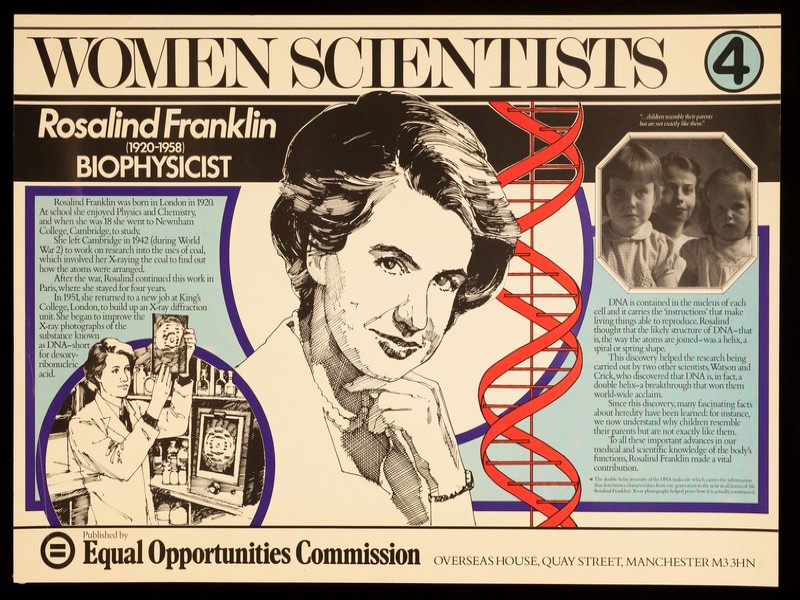 An Equal Opportunities Commission poster.
An Equal Opportunities Commission poster.
Women in Science, Technology, Engineering and Mathematics (STEM)
On these areas, we hold:
How to search
These are some of the highlights from the archives. You can find more material by searching the catalogue using a person’s name, organisation, or occupation, or by using terms such as “performing arts”, “entertainment”, “actress”, “Women journalists”, “lawyers”, “legal profession”, “women’s employment”, “medicine”.
How do I access?
Most of the material highlighted here is part of our special collections, which are open to all but must be consulted in our reading room. Find out how to book your place and order material on our access archives and special collections page.
How do I get further help?
If you need any further help with these collections, please get in touch with our Curator for Equality, Rights and Citizenship, Gillian Murphy.